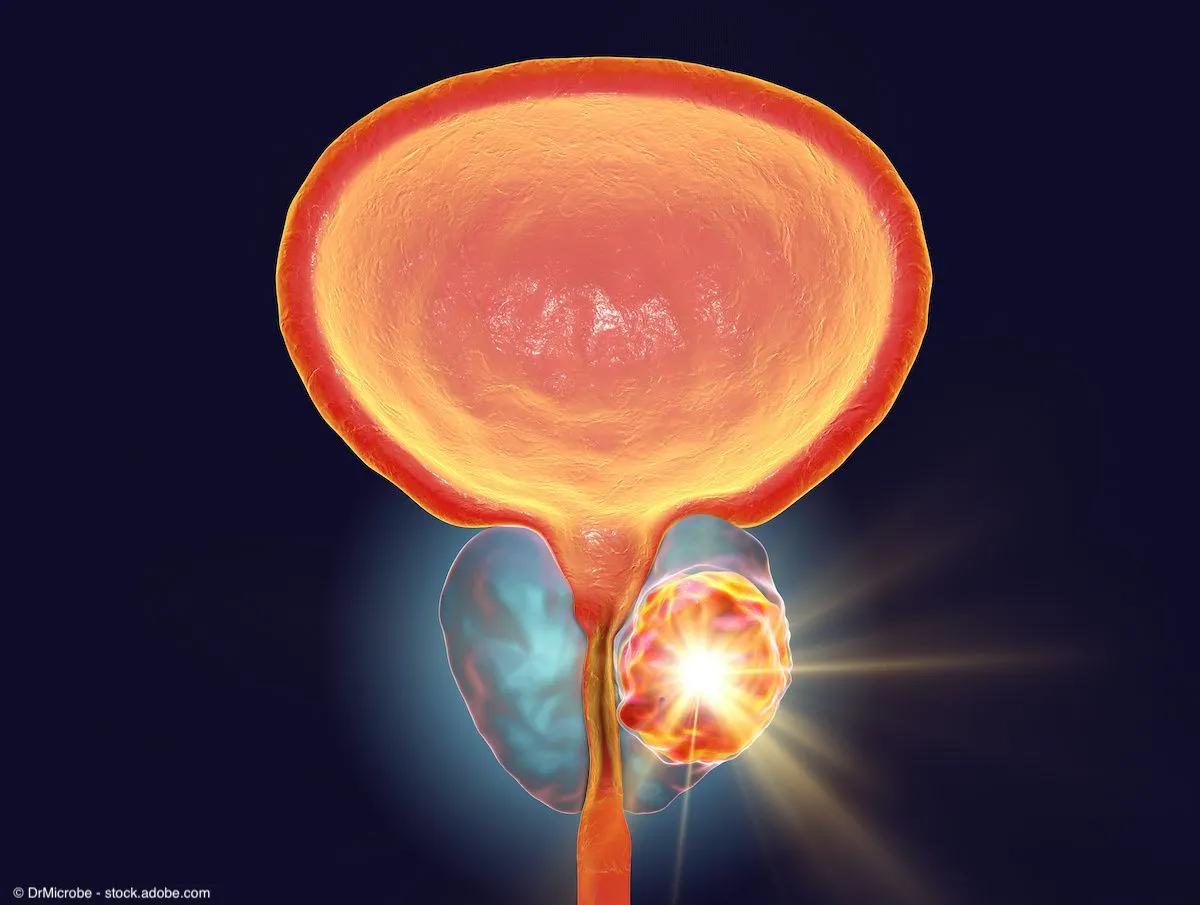Actinium-225-PSMA therapy shows strong antitumor activity in mCRPC
“To our knowledge, this is the largest investigation of the antitumor effect and toxicity of 225Ac-PSMA radioligand therapy in mCRPC,” the authors wrote.
Actinium-225 (225Ac) PSMA radioligand therapy (RLT) demonstrated strong antitumor activity in patients with previously treated metastatic castration-resistant prostate cancer (mCRPC), including individuals who had received 177Lu-PSMA RLT, according to findings from a retrospective study.1
“The antitumor effect of 225Ac-PSMA RLT in mCRPC is influenced by several factors, including previous treatment with taxane-based chemotherapies and the pattern of mCRPC metastases. These factors should be considered in selecting patients for 225Ac-PSMA RLT," the authors wrote.

At a median follow-up of 9 months, the median overall survival was 15.5 months and the median progression-free survival was 7.9 months. Nearly three-fourths (73%) of patients had any PSA decline and 57% of patients had a PSA decline of at least 50%.
“To our knowledge, this is the largest investigation of the antitumor effect and toxicity of 225Ac-PSMA RLT in mCRPC,” the authors wrote. “225Ac-PSMA radioligand therapy has substantial antitumor effects in mCRPC…Prospective trials are needed to validate the safety and survival benefits of 225Ac-PSMA RLT in patients with mCRPC.”
For their retrospective study, the investigators pooled data from 488 patients with mCRPC treated with 225Ac-PSMA RLT between Jan 1, 2016, and May 31, 2023, at 7 clinical centers across Australia, India, Germany, and South Africa. The patients were identified through a PubMed search for relevant studies of patients with histopathologically confirmed adenocarcinoma of the prostate who had received at least 1 cycle of 225Ac-PSMA RLT (8 MBq, intravenous) for mCRPC.
Patients had a mean age of 68.1 years (range, 37-90) and a median baseline PSA of 169.5 ng/mL (interquartile range, 34.6-519.8). ECOG performance status was as follows: 0 (25%), 1 (40%), 2 (16%), 3 (9%), 4 (3%), and not available (8%).
For the 363 patients for whom International Society of Urological Pathology grade groups were available, the groups were grade 1 (6%), grade 2 (10%), grade 3 (13%), grade 4 (25%), and grade 5 (47%). Metastases in patients included bone (89%), lymph node (72%), visceral (20%), and peritoneal (2%). Prior treatments included docetaxel (66%), cabazitaxel (21%), abiraterone (39%), enzalutamide (39%), 177Lu-PSMA RLT (32%), and radium-223 dichloride (4%).
Patients received a median of 2 treatment cycles (IQR, 2-4).
Regarding safety, the authors noted that among 347 patients with available xerostomia data, 68% (n = 236) experienced treatment-induced xerostomia following their first cycle of 225Ac-PSMA RLT. Further, xerostomia was reported in all patients who received more than 7 cycles of 225Ac-PSMA RLT.
Other toxicities of note were grade ≥3 anemia in 13% of the 488 patients, grade ≥3 leukopenia in 4%, grade ≥3 thrombocytopenia in 7%, and grade ≥3 renal toxicity in 5%. The authors reported no serious adverse events or treatment-related deaths.
“The results of this international multicenter study provide the strongest evidence to date supporting the antitumor activity and safety of 225Ac-PSMA RLT for mCRPC treatment,” the authors wrote in their conclusion, also noting their data showed that, “The antitumor effect of 225Ac-PSMA RLT in mCRPC is influenced by several factors, including previous treatment with taxane-based chemotherapies and the pattern of mCRPC metastases. These factors should be considered in selecting patients for 225Ac-PSMA RLT, especially considering the current limitation in 225Ac supply and the prevalence of xerostomia induced by this therapy.”
Reference
1. Sathekge MM, Lawal IO, Bal, et al. Actinium-225-PSMA radioligand therapy of metastatic castration-resistant prostate cancer (WARMTH Act): a multicenter, retrospective study [published online January 10, 2024]. doi:10.1016/ S1470-2045(23)00638-1
Dr. Schuster highlights the FDA approval of imaging agent flotufolastat F 18 in prostate cancer
June 22nd 2023"We're excited that the FDA approval of this radiotracer gives us yet more tools at our disposal to diagnose prostate cancer in all its forms, from early to late in the disease process," says David M. Schuster, MD, FACR.
Study shows 177Lu-PSMA-617 is noninferior to cabazitaxel in post-chemo mCRPC
January 3rd 2024Data from the phase 2 TheraP trial showed that 177Lu-PSMA-617 induced comparable overall survival outcomes as cabazitaxel in patients with metastatic castration-resistant prostate cancer who progressed after receiving docetaxel.
